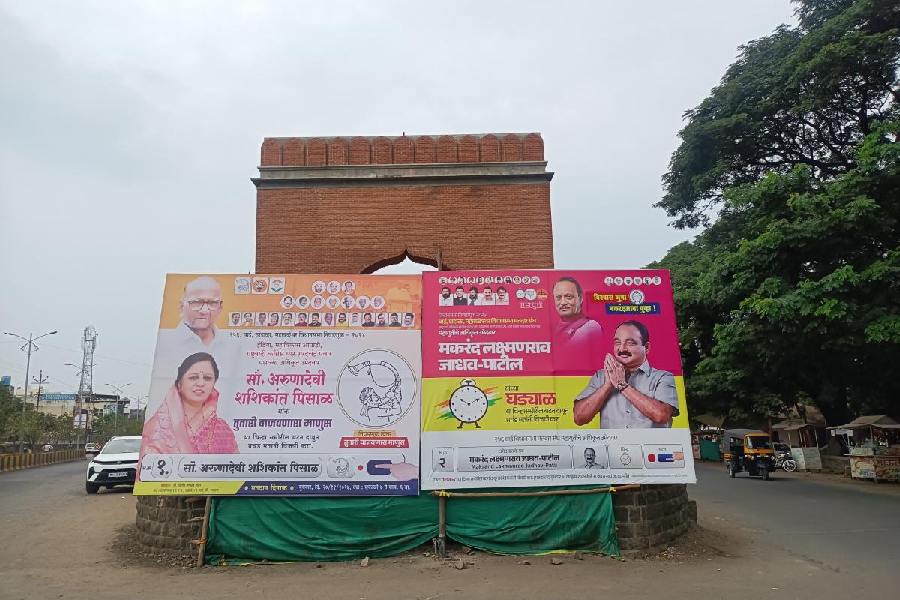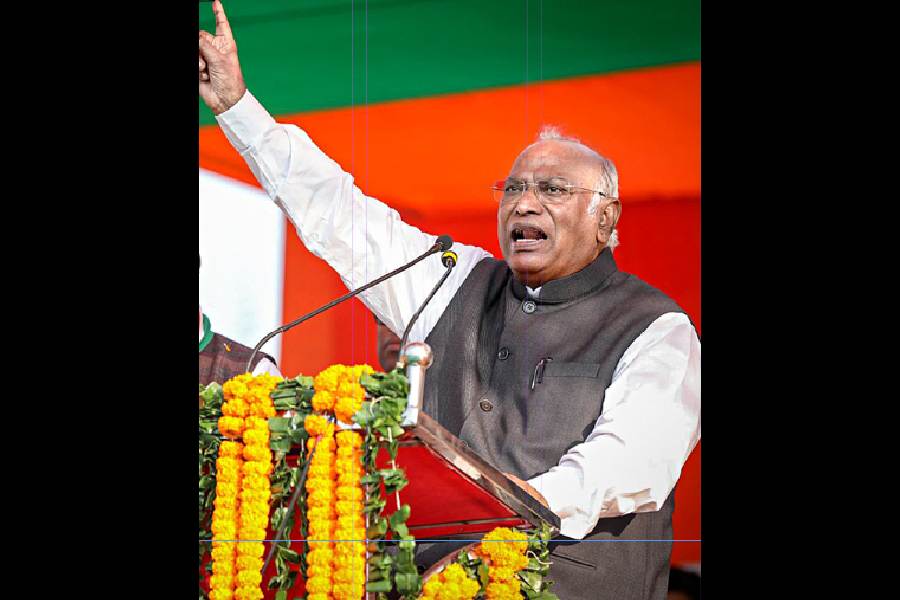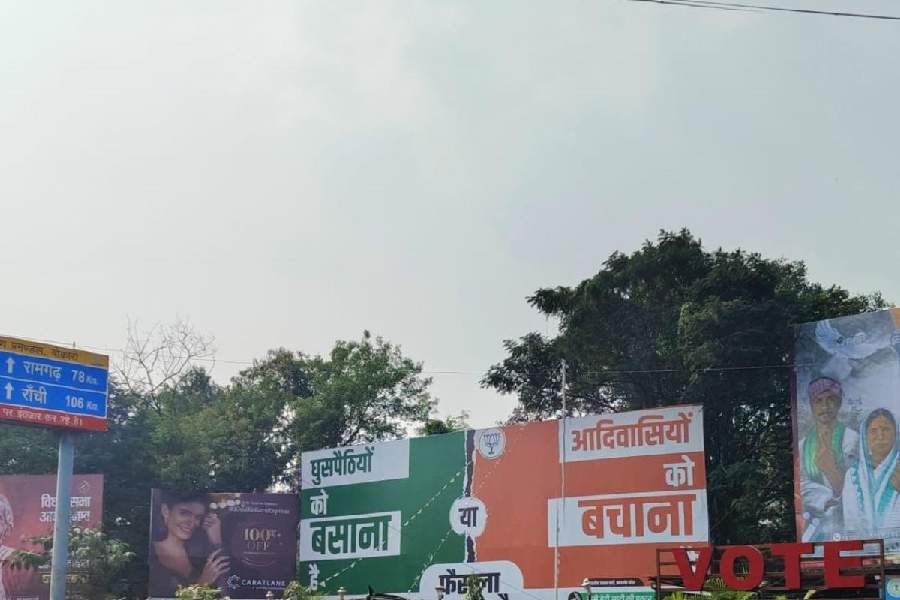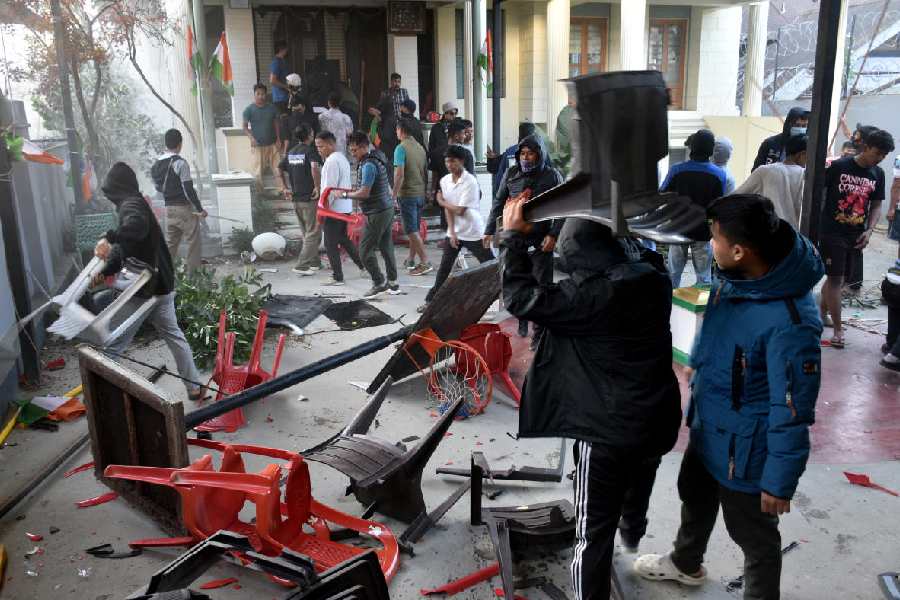Hotel Kanti, a tea-and-snacks place in Atit village of Satara district, aptly captures the never-seen-before political muddle in Maharashtra, where splits in parties and turncoat leaders have blurred ideological boundaries.
Every morning, political rivalries raise a storm in a teacup here but by evening, it blows over with the opponents merrily partying together.
Supporters of the two rival alliances — Mahayuti and Maha Vikas Aghadi — fight over tea through the day, go out and canvass for votes separately, and get together in the evening for drinks.
“Hum din bhar khub ladai karte yahan par, lekin raat me milke daaru pite hain (We fight all day here but drink together at night),” said Vaibhav Jadhav, bursting into laughter. He identified himself as a staunch supporter of the Sharad Pawar faction of the NCP.
“Jab upar sab neta mila hua hai toh hum kaiko ladai karen (When the political leaders at the top are aligned with each other, why should we fight)?” justified Balasaheb Jadhav, a BJP supporter.
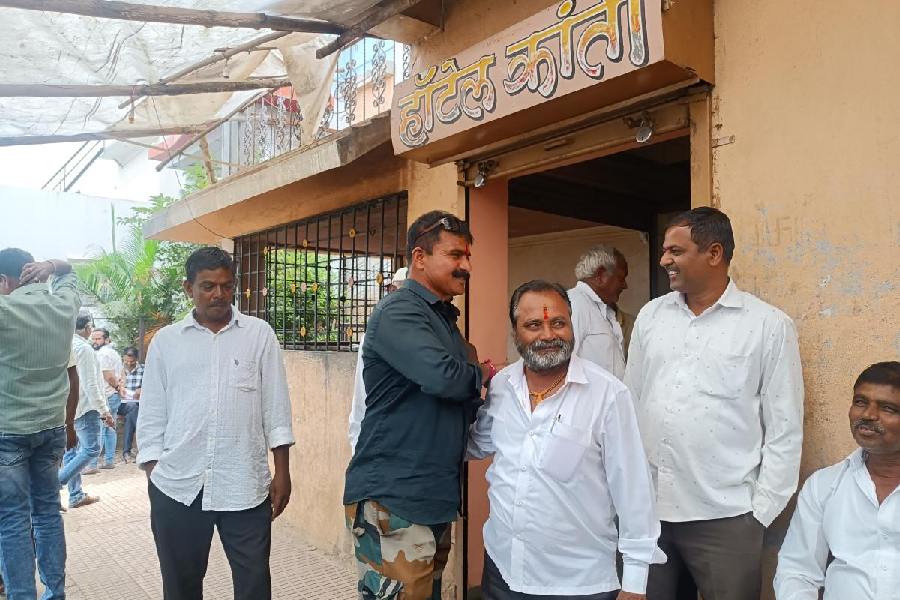
Hotel Kranti in Atit village where supporters of rival BJP and NCP (Sharad Pawar) have tea together.
Asked which of the two alliances was likelier to win the polls, the two sides replied almost in unison: “Anything can happen; anyone can form the government.”
Sanjay Jagtap, a BJP worker, said: “Speculation is already spreading that Sharad Pawar could align with the BJP and form the government to sideline his nephew, Ajit Pawar.”
He then looked at village headman Chandrakant Yadav, a staunch supporter of Sharad’s NCP, and asked: “Is it possible?”
“Why not?” Yadav said in approval.
The way the political landscape of Maharashtra has changed in the last five years, a sense of cynicism has filled the electorate at large as well as the party cadres.
It started with the erstwhile Shiv Sena breaking off ties with oldest ally BJP to join the ideologically opposed Congress-NCP five years ago. This was followed by a split in the Sena two-and-a-half years later. Then came another split, in the NCP. From four parties, there are now six parties competing in two coalitions.
From bustling Mumbai and Pune to the sugarcane hinterland of western Maharashtra, ordinary voters repeatedly came up with expressions like “Maha-confusion” and “khichdi” to describe the situation. “Who knows who will be on which side after the polls,” was the refrain.
“The public is being fooled by the politicians. They take our votes, win and then change sides,” said Sunil Tigre, a hotel manager on the Pune-Baramati road.
“Pawar Saheb and Ajit Dada are at daggers drawn now but tomorrow they will come together. So why should common people fight over them?”
Among the voters, no clear wave or tilt towards any sideis discernible. With no pan-state narrative, this election looks like a series of localised fights on different issues in different regions.
A large number of rebels from each of the two alliances, scores of Independents and the smaller parties have further muddled the picture.
Much of the energy of the Maratha quota agitation, which seemed to be playing out favourably for the Opposition, appears to have dissipated barring some regions of Marathwada.
“Jarange’s (the activist leading the Maratha quota agitation) credibility has gone down,” said Prateek Daund in Satara, referring to how the activist had declared he would field candidates and then backed out.
The other big issue — agrarian distress — which dealt a blow to the BJP and its allies in the Lok Sabha polls continues to simmer but not with the same force as six months ago.
A good monsoon, followed up with steps to resume onion export, has cooled some of the farmers’ anger. However, the depressed prices of soybean and turmeric continue to leave many farmers frustrated with the government.
The loudest buzz in the poll arena has been generated by the government’s monthly cash dole of Rs 1,500 for poor women under the Ladki Bahin scheme. But many voters termed it inadequate.
“What is ₹1,500 a month? Look at the price of cooking oil. A 15-litre can, which used to sell at ₹1,200 a few months ago, is now selling at ₹2,200,” said Satyavan Govind, a vegetable farmer at Manchur in rural Pune.
With the main points of discontent blunted and the cash dole generating some excitement, the ruling alliance’s managers believe the Assembly polls will turn out better for the Mahayuti than the general election.
“There is no overriding mood among the voters to oust the incumbent government. We have an edge but you can’t be certain in a close election,” a BJP strategist said.
This uncertainty about victory, according to BJP sources, has led the party to push a strident Hindutva line, represented by the slogan “Batenge toh katenge (Divided, we’ll be slaughtered)”.
But while the slogan has divided the political players — its critics including several allies and even BJP figures — it seems to have had little impact on the voters barring some urban stretches as in Mumbai, Pune and Nagpur.
In the rural areas, the Hindus, divided along caste lines, remain indifferent to the effort to polarise them along religious lines.
The slogan has, however, aroused fear among some Muslim voters.
At Ramkrishnagar in Satara, young Altaf Kazi could recall not one instance of Hindu-Muslim tension in decades in the village. But he was afraid. Of the about 200 households here, only 30-40 are Muslim.
“I am sure no Hindu-Muslim thing will happen here but, God forbid, if some incident takes place somewhere, wouldn’t it affect our village too?” Kazi, who makes a living making steel boxes for grain storage, said.
His neighbour and farmer Riyaz Desai said: “The BJP candidate here is a very good person. But the ‘katenge-batenge’ slogan stops me from voting for him.”
- Maharashtra votes onNovember 20

